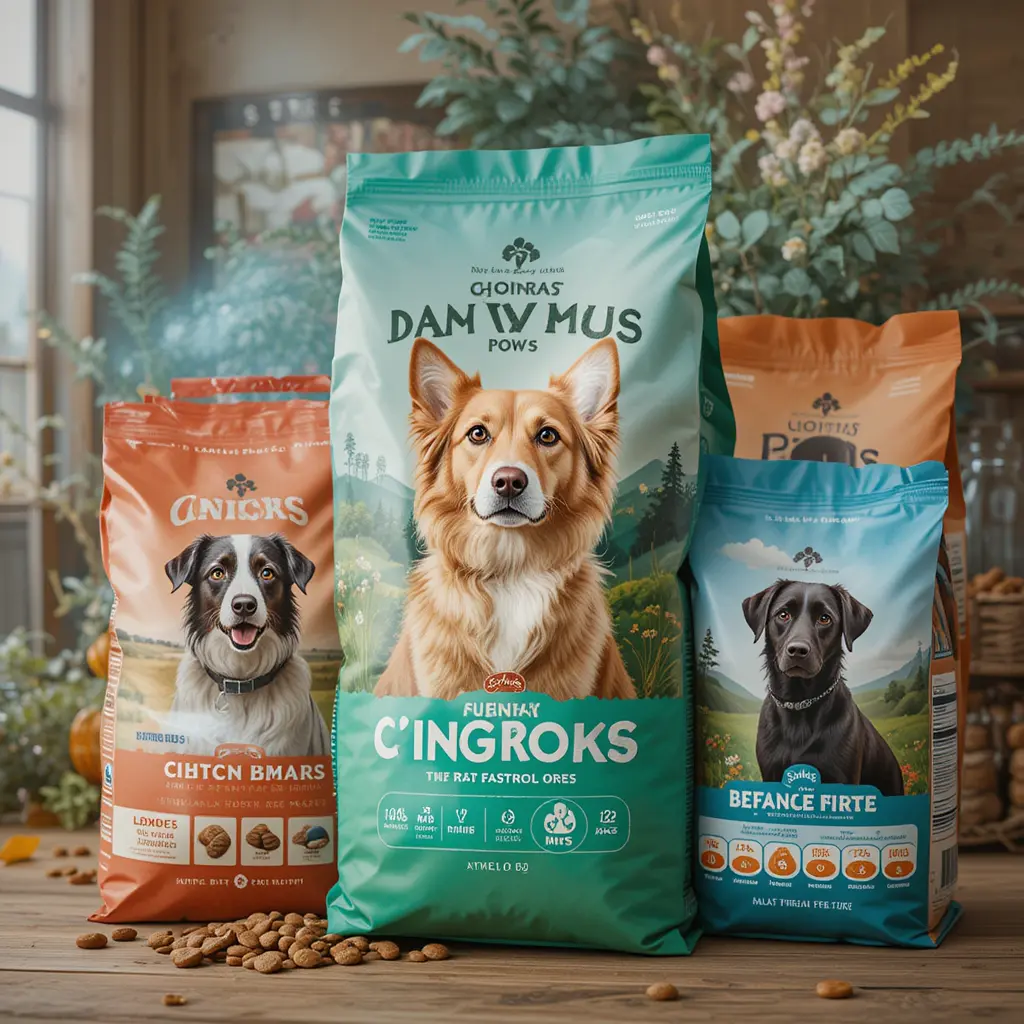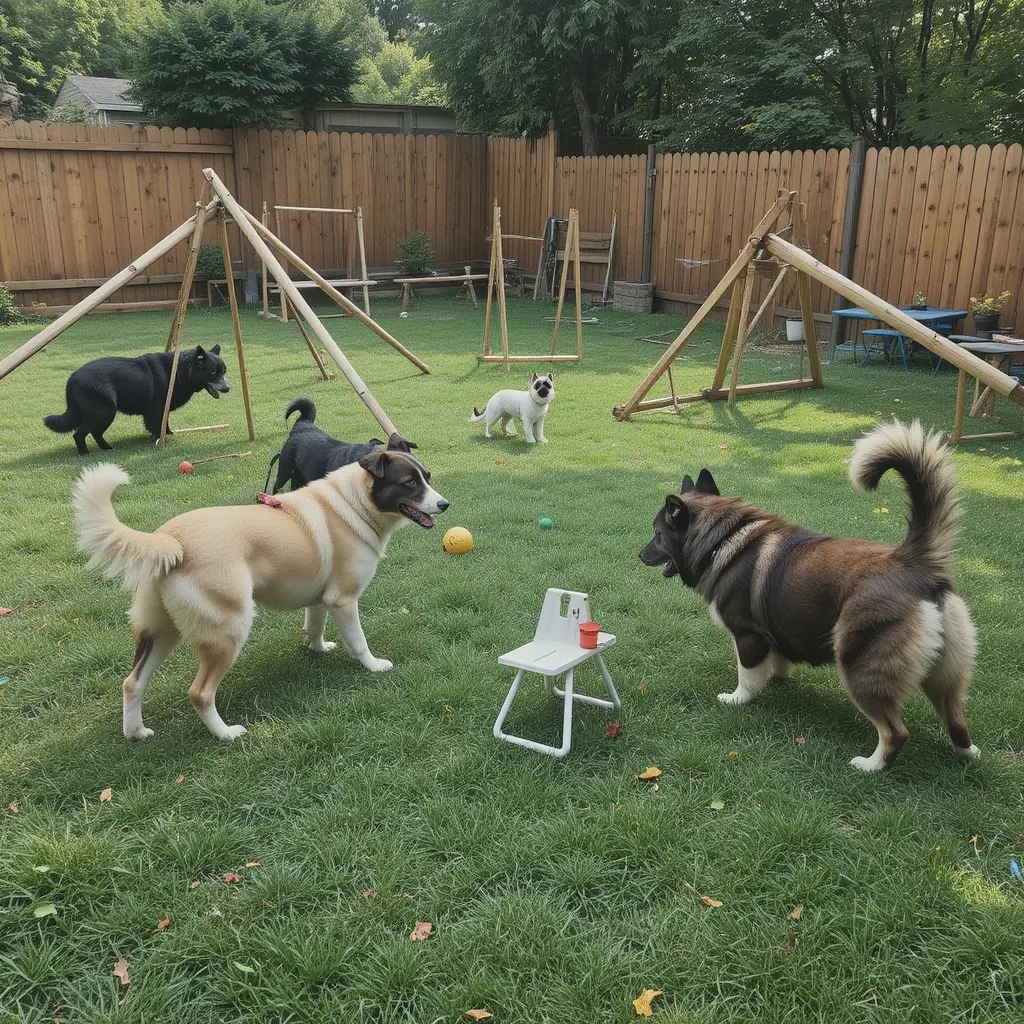Ever wondered why your dog’s food matters so much? Choosing the right food for your dog’s breed can make a big difference in their health and happiness. Each breed has unique dietary needs that can affect their energy, coat, and overall well-being. In this article, we explore the best dog foods tailored for different breeds, ensuring your furry friend stays happy and healthy. Discover how the right nutrition can enhance your dog’s life and keep their tail wagging.
Understanding Nutritional Needs of Different Breeds
Understanding the nutritional needs of different dog breeds is crucial for their health and happiness. As a veterinary nutritionist, I often see how the right diet can transform a dog’s life. Just like humans, dogs have unique dietary requirements based on their breed, size, and activity level. It’s fascinating how a small change in diet can make a big difference in their energy and overall well-being.
Breed-Specific Nutritional Needs
Each breed has its own set of nutritional needs. For instance, large breeds like Great Danes require diets that support joint health due to their size. On the other hand, smaller breeds such as Chihuahuas need calorie-dense foods to match their fast metabolism. I remember a client with a Golden Retriever who was struggling with weight. By adjusting his diet to include more fiber and less fat, we saw a remarkable improvement in his energy levels and weight management.
It’s important to choose The Best Dog Foods for Different Breeds to ensure they receive the right balance of nutrients. For example, a high-protein diet is essential for active breeds like Border Collies, while a diet rich in omega-3 fatty acids can benefit breeds prone to skin issues, such as Bulldogs. I often recommend foods that are specifically formulated for each breed’s unique needs, as they can significantly enhance a dog’s quality of life.
Real-World Examples and Personal Insights
In my experience, owners who understand their dog’s nutritional needs often see happier and healthier pets. I once worked with a family who had a Poodle with a sensitive stomach. By switching to a hypoallergenic diet, the dog’s digestive issues improved dramatically. It’s moments like these that remind me of the power of proper nutrition. While it might seem overwhelming at first, finding the right food can be a rewarding journey for both you and your furry friend.
Ultimately, the key is to pay attention to your dog’s specific needs and consult with professionals when necessary. With the right guidance, you can ensure your pet enjoys a long, healthy, and happy life. Remember, the best dog foods for different breeds are those that cater to their individual requirements, making them not just healthier, but also more content.
Small Breeds: Tailored Nutrition for Tiny Tummies
Small breeds have unique nutritional needs that require special attention. Their tiny tummies mean they need food that is both nutrient-dense and easy to digest. As a Veterinary Nutritionist, I often see how the right diet can make a world of difference for these little companions. Choosing the best dog foods for different breeds, especially small ones, is crucial for their health and happiness.
Understanding Small Breed Needs
Small breed dogs, like Chihuahuas and Pomeranians, have faster metabolisms compared to larger breeds. This means they burn calories quickly and need more frequent meals. I remember a client with a lively Yorkshire Terrier who was always full of energy. We found that feeding her a high-quality small breed dog food, rich in protein and healthy fats, kept her active and satisfied. It’s important to select foods that cater to their specific energy requirements.
Choosing the Right Ingredients
When selecting small breed dog food, look for ingredients that support their overall health. Foods with high-quality proteins and essential fatty acids are ideal. These nutrients help maintain their coat, skin, and muscle health. I often recommend foods with added vitamins and minerals to support their immune system. A balanced diet can prevent common issues like obesity and dental problems, which are prevalent in small breeds.
In my experience, small dogs thrive on diets that are tailored to their size and energy levels. The best dog foods for different breeds should always consider these factors. By providing the right nutrition, we can ensure our tiny friends live long, healthy lives. Remember, a happy dog is a well-fed dog!
Medium Breeds: Balanced Diet for Active Lifestyles
Medium breeds often have a zest for life that keeps them on the move. As a veterinary nutritionist, I see these dogs as the perfect balance between energy and companionship. They need a diet that matches their active lifestyle, ensuring they stay healthy and happy. Choosing the right food can be a game-changer for their well-being.
Understanding Their Nutritional Needs
Medium breed dogs, like Border Collies and Bulldogs, require a diet that supports their energy levels. They are not as small as a Chihuahua, nor as large as a Great Dane, but they have their own unique needs. A balanced diet with the right mix of proteins, fats, and carbohydrates is essential. I often recommend foods rich in omega-3 fatty acids for joint health, especially for breeds that love to run and play.
In my experience, finding the best dog foods for different breeds involves considering their activity level. For instance, a Labrador Retriever might benefit from a diet with higher protein content to support muscle maintenance. On the other hand, a less active breed might need fewer calories to prevent weight gain. It’s all about balance.
Choosing the Right Medium Breed Dog Food
When selecting medium breed dog food, look for options that list meat as the first ingredient. This ensures your dog gets the necessary protein. I once had a client with a very picky Cocker Spaniel. We tried several brands before finding one that not only met her nutritional needs but also appealed to her taste buds. It was a relief to see her enjoy her meals again.
Another tip is to check for added vitamins and minerals. These are crucial for maintaining a healthy coat and strong bones. I always advise pet owners to read labels carefully. It’s surprising how much you can learn about a product by simply understanding its ingredients.
Ultimately, the goal is to keep your medium breed dog thriving. With the right food, they can enjoy their active lifestyle to the fullest. Remember, a happy dog is a healthy dog, and choosing the right diet is a big part of that happiness.
Large Breeds: Supporting Growth and Joint Health
When it comes to large breeds, their nutritional needs are unique. These gentle giants require a diet that supports their growth and joint health. As a Veterinary Nutritionist, I often emphasize the importance of choosing the right food to ensure their well-being. Large breeds, like Great Danes and Saint Bernards, have specific dietary requirements that differ from smaller dogs. It’s crucial to provide them with the best dog foods for different breeds to keep them happy and healthy.
Understanding Growth Needs
Large breed puppies grow rapidly, and their diet must support this growth without overloading their developing joints. I remember a client with a young Labrador Retriever who was feeding him regular puppy food. The pup was growing too fast, which can lead to joint issues later in life. Switching to a large breed dog food made a significant difference. These foods are formulated with the right balance of nutrients to control growth rates and support bone development.
Joint Health Considerations
Joint health is a major concern for large breeds. Foods rich in glucosamine and chondroitin can help maintain joint health. I often recommend foods that include these supplements, as they can be beneficial in preventing joint problems. A friend of mine had a Golden Retriever who struggled with joint pain. After switching to a large breed dog food with added joint support, the improvement was remarkable. It’s these small changes that can make a big difference in a dog’s quality of life.
Special Considerations for Mixed Breeds
When it comes to feeding our beloved mixed breed dogs, the task can feel a bit like solving a delightful puzzle. Each mixed breed is unique, often inheriting traits from multiple breeds, which can make their nutritional needs a bit more complex. As a Veterinary Nutritionist, I find this challenge both exciting and rewarding.
Understanding Mixed Breed Dog Nutrition
Mixed breed dogs, much like a patchwork quilt, combine characteristics from different breeds. This means their dietary needs can vary widely. For instance, a mixed breed with a Labrador and a Poodle parent might require a diet that balances energy levels with joint support. In my experience, observing your dog’s behavior and energy levels can provide clues about their nutritional needs. It’s like being a detective, piecing together the clues to find the best dog foods for different breeds.
One of my clients had a mixed breed dog named Max, who was part Beagle and part German Shepherd. Max had a lot of energy but also needed support for his joints. We found that a diet rich in omega-3 fatty acids and glucosamine worked wonders for him. This is a great example of how understanding the specific needs of a mixed breed can lead to a healthier, happier dog.
Personalized Nutrition for Mixed Breeds
Every mixed breed dog is a unique individual, and their diet should reflect that. I often recommend starting with a high-quality, balanced dog food and then making adjustments based on your dog’s specific needs. For example, if your dog has a sensitive stomach, you might consider a food with limited ingredients. It’s important to remember that what works for one dog might not work for another, even if they share similar breeds in their lineage.
In my opinion, the joy of owning a mixed breed dog is in the surprises they bring. Their unique blend of traits can make them wonderful companions, and finding the best dog foods for different breeds is part of the adventure. By paying attention to their individual needs, you can ensure they live a long, healthy life.
Conclusion
Choosing the right food for your dog can feel like a daunting task. With so many options available, it’s easy to get overwhelmed. However, understanding your dog’s specific needs can make this process much simpler. As a veterinary nutritionist, I’ve seen firsthand how the right diet can transform a dog’s health and happiness.
Understanding Your Dog’s Needs
Every breed has unique dietary requirements. For instance, a Chihuahua’s nutritional needs differ significantly from those of a Great Dane. It’s like comparing a compact car to a truck; both need fuel, but the type and amount vary. The Best Dog Foods for Different Breeds cater to these specific needs, ensuring your pet gets the right balance of nutrients.
In my practice, I’ve encountered many pet owners who were unsure about what to feed their dogs. One memorable case involved a Labrador Retriever with a sensitive stomach. After switching to a diet designed for digestive health, the dog’s energy levels soared, and its coat became shinier. This experience reinforced my belief in the power of tailored nutrition.
Personal Insights and Recommendations
From my perspective, it’s crucial to consider factors like age, activity level, and health conditions when selecting dog food. Puppies, for example, require more protein and calories than senior dogs. Think of it as fueling a growing child versus an elderly person. Quality ingredients are also essential. Look for foods with real meat as the first ingredient and avoid those with excessive fillers.
Ultimately, the goal is to keep your furry friend happy and healthy. By choosing The Best Dog Foods for Different Breeds, you can ensure your pet thrives. Remember, a well-fed dog is a happy dog, and their wagging tail will be all the proof you need.






